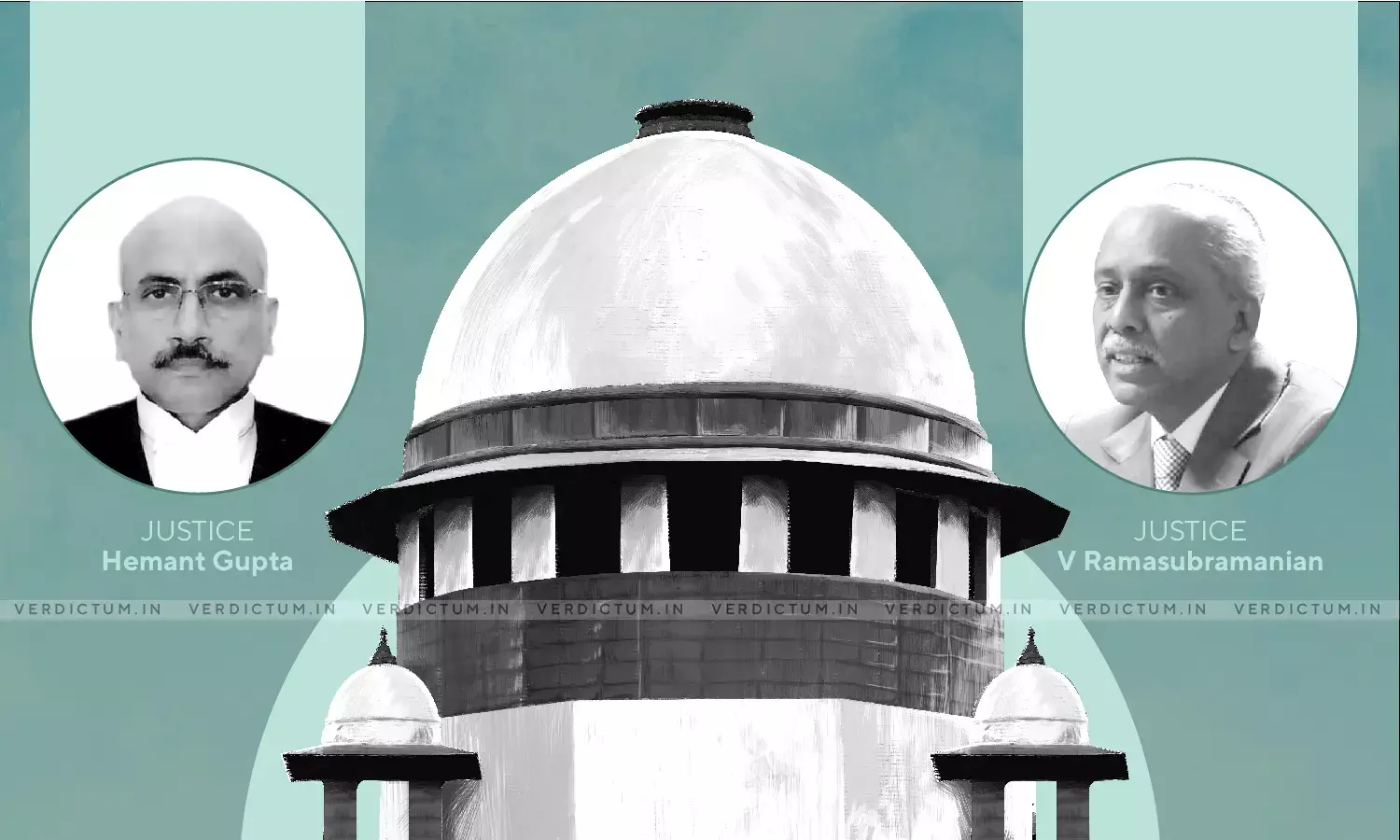Order U/s. 48(1) Of Land Acquisition Act Is Not Quasijudicial, Can Be Rescinded U/s. Section 21 Of General Clauses Act- Supreme Court

A two-judge Bench of Justice Hemant Gupta and Justice V. Ramasubramanian has held that an order under Section 48(1) of the Land Acquisition Act, 1894 is not a quasijudicial order and that as a consequence the Government can fall back upon Section 21 of the General Clauses Act to rescind an order under Section 48(1).
In this context, the Supreme Court noted –
"While a Notification for acquisition issued under Section 4(1) of the Land Acquisition Act seeks to take away an individual's right to property, a Notification under Section 48(1) is actually the reverse or opposite. It confers benefit upon an individual and hence it is not supposed to be preceded by any enquiry."
Counsel Mr. Vishwajit Singh appeared for the Appellants while Counsel Mr. Krishnam Mishra and Counsel Mr. Anand Varma appeared for the Respondents
Appeals were preferred by the Appellant - U.P. Avas Evam Vikas Parishad assailing the orders of the Allahabad High Court which had set aside a notification canceling a previous notification issued under Section 48(1) of the Land Acquisition Act for the release of the land of the Respondents from acquisition.
In this case, a notification was issued under Section 9(1) of the U.P. Avas Evam Vikas Parishad Adhiniyam, 1965 read with Section 48(1) and 49(1) of the Land Acquisition Act after which the land was exempted from acquisition. However, a second notification was issued after it on the ground that the landowners had made false representations in seeking the release of the land.
Aggrieved, the Respondents had filed two Writ Petitions challenging the latter notification which were allowed by the Division Bench of the High Court. The High Court had held that once the acquired land was released from acquisition, by way of Notification, the Government can reclaim the land only by initiating a fresh process of acquisition.
It was contended by the Respondents before the Supreme Court that Section 21 of the General Clauses Act did not confer an overarching power on the Government to rescind a notification conferring vested rights in immovable property especially when such a power is not contemplated by the Land Acquisition Act, 1894.
The issues which were dealt with by the Court were –
Whether the State Government had the power to rescind the notification issued under Section 48(1) and whether this power was administrative in nature; and
Whether the High Court was right in observing that once the land was released from acquisition it could be reclaimed by the initiation of fresh process of acquisition.
i) Regarding First Issue
The Apex Court noted, "A notification under Section 48(1) confers benefit upon an individual and hence it is not supposed to be preceded by any enquiry. The essence of an order which is quasijudicial in nature is that it is preceded by an opportunity of hearing to the party affected thereby. A notification under Section 48(1) does not warrant any notice or opportunity of hearing, to the original land owners."
"If at all any person will be aggrieved by the Notification under Section 48(1), it will be the beneficiary of the acquisition, which in this case is the Parishad, and not the land owners. Therefore, we can understand if the Parishad makes out a grievance that their rights were taken away by the notification under Section 48(1) especially after the land vested in them," opined the Bench.
The Court rejected the argument of Respondents that a notification under Section 48(1) is a quasi-judicial order. In this context, the Court further observed –
"As a consequence, we reject the argument that the Government cannot fall back upon Section 21 of the General Clauses Act to rescind an order under Section 48(1)."
ii) Regarding Second Issue
The Court noted that the first notification was secured by the Respondents by false representations and by playing fraud. The Court further held –
"When the respondents wanted to ward off the acquisition, they claimed that there were cemeteries of their forefathers, but after the first notification was issued, they started selling the land to third parties, who cannot and do not share the same religious sentiments with the respondents."
Further, the Court held, "It is trite to point out that an order secured by fraud and misrepresentation will not confer any vested right and that, therefore, the land owners cannot pitch their claim either on the basis of vesting or on the basis of Article 300A."
The Court also opined that the withdrawal of such illegal notification, which was secured by fraud could not be found fault with.
In the light of these observations, the Court allowed the appeals and set aside the impugned orders of the High Court. The Court also gave a direction that since the acquisition was complete in all respects the Appellant could proceed to implement the public purpose for which the land was acquired.
Click here to read/download the Judgment

